Five years after the Olympic Games – the London stadium was once again the theatre where athletics drama played out – this time during the IAAF World championships. Surprisingly, this was the first time Britain was hosting IAAF’s marquee event and the country put on a great show during the 10-days. Before the championships began some sessions had already sold out with organisers putting total ticket sales at over 700,000. The spirit of the Olympics was still alive at the Queen Elizabeth Olympic Park and for the fans that had missed a chance to experience the Games in 2012; the World championships gave them an opportunity which even the erratic British summer couldn’t ruin. Granted the IAAF World championships are second to the Olympics in stature, the level of competitiveness is the same as is the calibre of athletes present. In London, one athlete captured everyone’s imagination as he has done since breaking through to the top in 2008, Jamaica’s Usain Bolt.
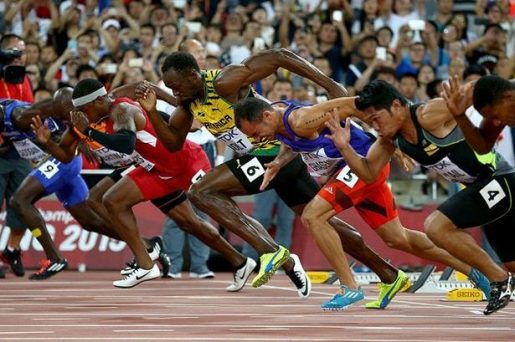
London was Bolt’s curtain call. 12 years since first participating at the World championships the man from Trelawney who had grown to become the face of athletics had had enough. Age is catching up and at 30-years-old his body can no longer produce the top performances fans have become accustomed to. And well, it was expected, he is human after all. But for a moment the world had almost forgotten that – to his fans, he was invincible, with gold medal after gold medal and throw in world records for good measure, Bolt could’ve easily been the world’s eighth wonder.
Bolt always said he wanted to be a legend often making reference to the late Muhammad Ali and like the boxer, the Jamaican did indeed transcend his sport, not just with the 21 global gold medals he won over his whole career but also off the track but with his larger than life personality. To some Bolt is the man who saved track and field.

The fairy tale ending many wished for Bolt in London was not to be, but that did not make his farewell less memorable. Bolt finished third in the 100m behind Americans Christian Coleman (silver) and Justin Gatlin (gold). Gatlin’s gold medal tainted by a checkered doping violation history with IAAF President Sebastian Coe saying “I would rather not see athletes who have been tested positive in the past walking away and winning titles in some of the biggest moments in our sport.” In his final race Bolt pulled up with a muscle cramp running as Jamaica’s anchor leg in the 4 by 100m relay, ending the championship without a gold medal for the first time in a decade. Britain were the winners as USA took silver and Japan bronze.
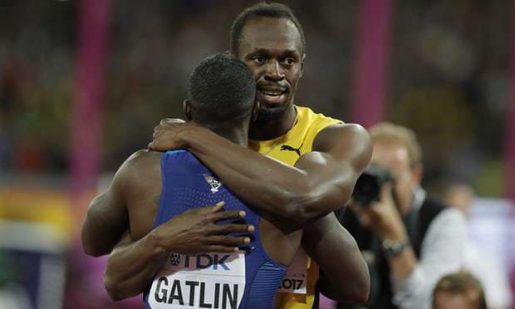
In a sombre press conference Bolt expressed his gratitude to fans and the media, the tears did not come even during his final lap of honour, but the atmosphere was heavy with emotion. It was not a very bad weekend for Bolt though, Manchester United’s 4-0 win in the EPL against West Ham brought a smile to his face, he says. So what does Usain Bolt, the retired athlete get up to now? Other sports could be of interest to him but he has certainly ruled a track comeback, “I think I’ve seen too many people retire and come back into sport just to really make it worse. I won’t be one of those persons to come back.”
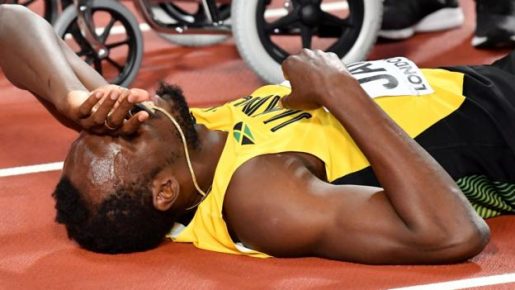
In the documentary I AM BOLT the Jamaican admits he does love to party and at least in retirement he will not worry about how this would affect his training. Reports emerged in the SUN daily about a garden party Bolt attended on the eve of the final track event of his career, where he was seen drinking and dancing till early morning.
Youngsters like Coleman are now being mentioned with reference to being ‘the next Bolt’. South Africa’s Wayde van Niekerk who won gold (400m) and silver (200m) in London is also seen as the athlete who could step into the athletics poster boy void Usain has left. Wayde fell short of matching Michael Johnson record of a 200m and 400m double after he was pipped on the line by Turkey’s Ramit Guliyev in one of the shock results of the competition.
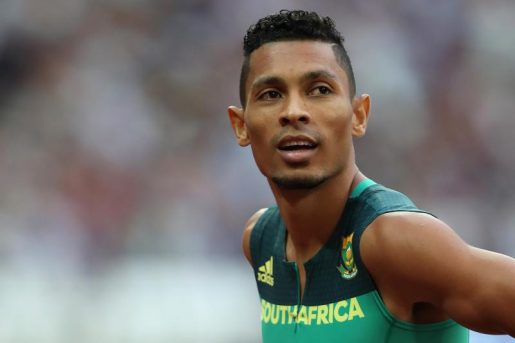
21-year-old Karsten Warholm delivered the other shock win in London. His stunned reaction at the end of the 400m hurdles final told the story of a young man who could not believe what just happened. The former World junior decathlete beat Yasmani Copello of Turkey (silver) and Olympic champion Kerron Clement of USA (bronze) to the gold medal.
The duels in London were also tempered by old rivalries. East Africans long distance track running battle with Mo Farah continued with the Briton coming out on top in the 10,000m but losing out to Edris Muktar of Ethiopia in the 5,000m. This was Farah’s first defeat in the 5,000m at major championships since 2011. For Ethiopia, the win was about reclaiming what many in East Africa believe is an athletics right – gold in long distance running. The championship was Farah’s last on track before he transitions fully to road running even as he continues to answer questions around doping. The multiple Olympic champion accused the media of being unfair to him asking them to ‘prove if he has crossed any lines with regard to performance enhancing drugs.
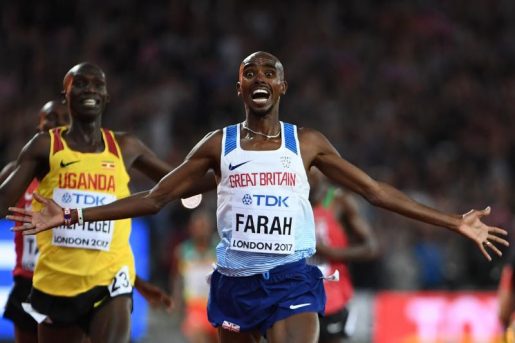
Five gold medals meant Kenya came out on top in the middle and long distance rivalry with their neighbours Ethiopia who won two titles. The 3,000m steeplechase easily went to Kenya in the men’s race as Olympic champion Conseslus Kipruto finally got a gold medal at the Worlds in the third time of asking. America produced a huge upset in the women’s event as Emma Coburn led the country’s sweep of the top two medals with 2015 champion Hyvin Kiyeng (Kenya) winning bronze.
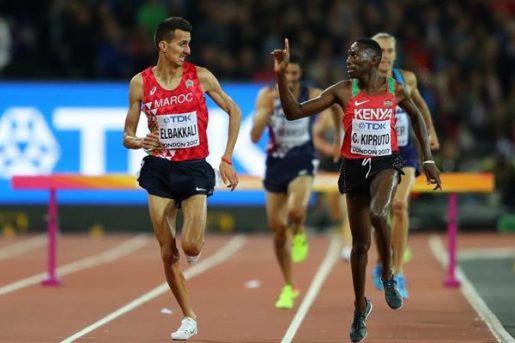
The jumps had plenty of drama as well with Venezuala’s Yulimar Rojas grabbing the gold ahead of two time World champion Colombia’s Caterine Ibarguen in the triple jump. For the men Will Claye’s challenge on Christian Taylor’s dominance fell short after the Olympic champion bagged a third World title.
Luvo Manyonga’s gold medal in the long jump was the feel good story of the championships. The South African, a drug-addict who turned his life around for a second chance at an athletics career led a one-three finish for the rainbow nation after Ruswahl Samaai claimed bronze behind America’s Jarrion Lawson.
Russian athletes also competed at the championship despite their country’s on-going ban from international competitions. 19 athletes were cleared by the IAAF to compete as authorised neutral athletes (ANA) and so when Maria Lasitskene successfully defended her high jump World title the IAAF anthem was played during the medal ceremony. In total ANA won six medals, one gold and five silver medals.
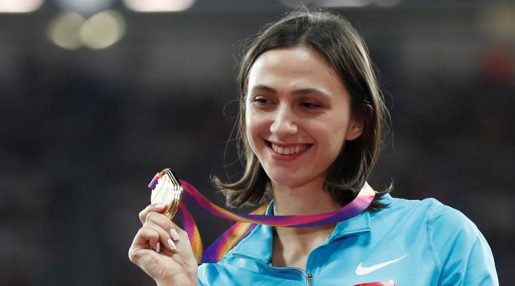
To compete at the World championships is often a moment of pride for athletes each one eager to represent their country. With no home, no flag and no national anthem the Athlete Refugee team in London were representing a bigger cause according to 800m runner Rose Lokonyen. She says, they want to give hope to Refugees around the world that they too can do what others are doing – an illustration of sports ability to change lives.
Celestine Karoney covered the 2017 IAAF Championship in London live








